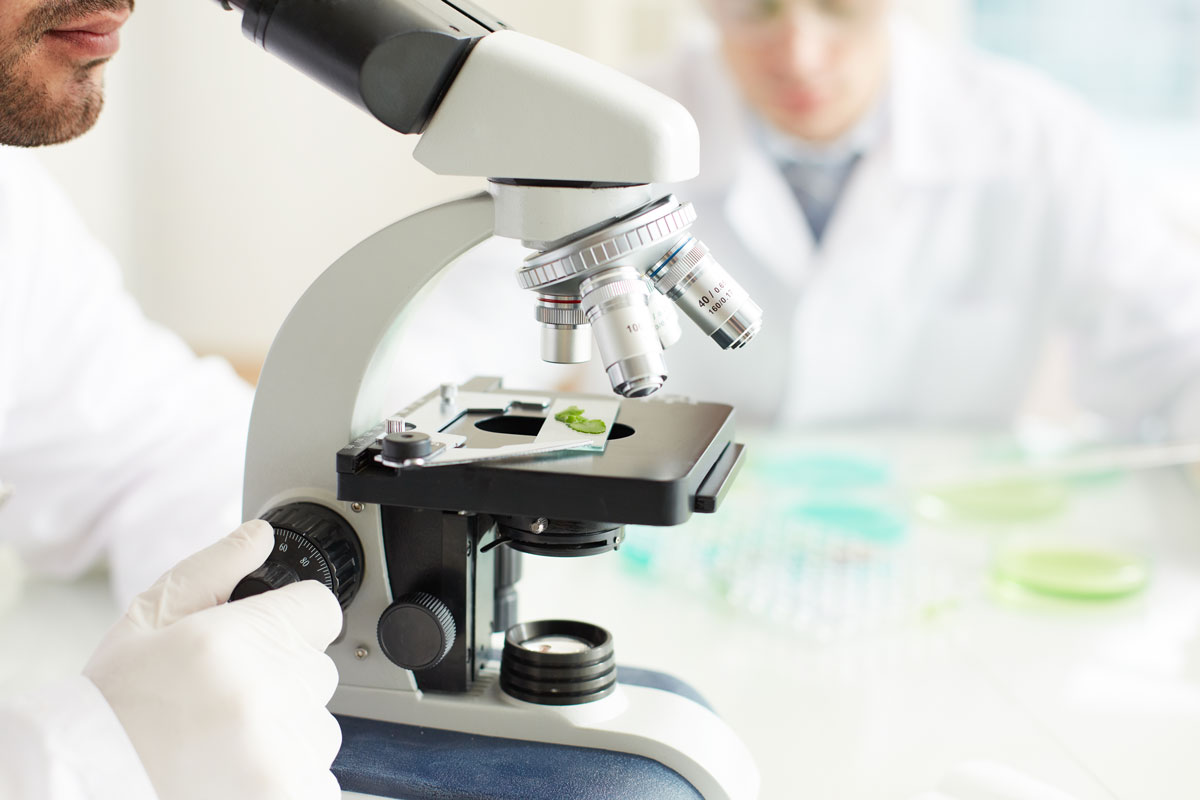BRCA 1 and BRCA 2 Increases Pancreatic Cancer Risk
If You Carry Mutated Genes BRCA 1 and BRCA 2, You Are At Increased Risk of Pancreatic Cancer

Written By Carlin Khulmann
October 8, 2018
BRCA 1 / 2 and Pancreatic Cancer
Angelina Jolie made headlines in 2013 when she announced that she underwent a preventative double mastectomy due to an inherited BRCA 1 mutation and her family history of breast cancer. Her openness led many women, especially those with a family history of breast or ovarian cancer, to think differently about their own potential risk and in some cases, consider genetic testing for the BRCA 1 and BRCA 2 gene mutations.
While only 5-10% of all cancer cases are due to an inherited genetic (germline) mutation[1], individuals and families who carry germline mutations, like BRCA 1 and 2, have a greater risk for developing multiple cancers as compared with the general population.
There is currently no routine screening for pancreatic cancer, but understanding one’s individual risk, including a possible genetic predisposition, can help lead to early detection through customized screening and surveillance as guided by a physician specialist or team of specialists.
What Are BRCA 1 and 2 Mutations?
BRCA 1 and 2, or Breast Cancer 1 and 2, are human genes that make proteins that suppress tumors by repairing damaged DNA. When BRCA 1 and 2 genes become altered, or mutated, such that they no longer make proteins, or the proteins do not function properly, damaged DNA goes unrepaired. The accumulation of DNA damage can lead to cancer[2].
We all inherit two copies of each of our genes: one copy from our mother and one copy from our father, so a mutated BRCA gene can be inherited from either parent. Being born with a mutated BRCA 1 or BRCA 2 gene does not necessarily mean cancer will definitively occur in that individual.
BRCA 1 and 2 and Pancreatic Cancer
When To Consider Genetic Testing
There are multiple personal and family history factors that could indicate the presence of an inherited BRCA 1 or BRCA 2 mutation. When one or more of these factors are present, a geneticist or genetic counselor can help patients make an informed decision about genetic testing. It’s always best to see a Genetic Counselor before getting Genetic Testing. The family history factors include the following:
- Breast cancer diagnosed before age 50 (personal or family history)
- Cancer in both breasts in the same woman
- Both breast and ovarian cancers in either the same woman or the same family
- Multiple breast cancers in the family
- Male breast cancer or a relative with male breast cancer
- A relative with ovarian cancer
- A personal history of breast cancer and one or more relatives with breast cancer diagnosed at age 50 or younger, one relative with ovarian cancer, or two or more relatives with breast or pancreatic cancer
- Ashkenazi Jewish ethnicity[5]
It is important to discuss individual risk factors with a genetic counselor or geneticist, who specialize in cancer genetics and are knowledgeable about the different types of genetic tests that are available.
Early Detection For Those Considered High-Risk
Individuals who test positive for a BRCA 1 or BRCA 2 mutation may benefit from enrollment in a program designed to surveil patients considered high-risk to ensure the earliest possible detection of cancer. The Seena Magowitz Foundation is familiar with two programs available for patients at increased risk for pancreatic cancer due to a family history of the disease or genetic predisposition such as a BRCA mutation:
1. The Pancreatic Cancer Early Detection/Prevention Program at HonorHealth in Scottsdale, AZ
2. The Anita Erickson Pancreatic Cancer Early Detection Program at Hoag in Newport Beach, CA
Both of the above programs assess patients’ risk for pancreatic cancer and develop personalized surveillance plans that may consist of special imaging tests, endoscopic ultrasound, and blood and urine tests to identify and monitor tumor markers. A multidisciplinary team of specialists in pancreatic cancer weigh-in on the best surveillance plan for each patient. The goal is to detect pancreatic cancer at the earliest possible stage when the chance for survival is the greatest.
Because research in this area is ongoing, de-identified patient information is submitted to a registry as shared by similar organizations in the nation to help improve pancreatic cancer early detection methods.
Related Reading
Inherited Genetic Mutations Increases Risk of Pancreatic Cancer
Genetic Testing and Genetic Counseling
The Major Pancreatic Cancer Risk Factors
Reducing The Risk of Cancer of The Pancreas
Sources
[1] American Cancer Society https://www.cancer.org/cancer/cancer-causes/genetics/family-cancer-syndromes.html
[2] BRCA Mutations: Cancer Risk and Genetic Testing was originally published by the National Cancer Institute (https://www.cancer.gov/about-cancer/causes-prevention/genetics/brca-fact-sheet#r8)
[3] https://www.cancer.org/cancer/pancreatic-cancer/about/key-statistics.html
[4] Kim, D.H., Crawford, B., Ziegler, J. et al. Familial Cancer (2009) 8: 153. https://doi.org/10.1007/s10689-008-9220-x
[5] https://www.mayoclinic.org/tests-procedures/brca-gene-test/about/pac-20384815
